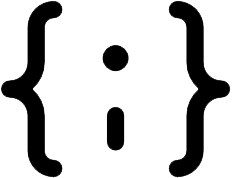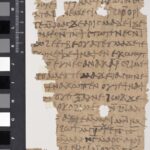| Artefact ID | 668 |
| TM ID | TM 87561 |
| Findspot (DEChriM ID) | 58 (Dayr al-ʿIẓām) | Class | Textual |
| Material | Papyrus |
| Writing medium | Sheet/roll |
| Text content | Documentary |
| Language | Coptic |
| Archive/Dossier | Archive |
| Description | P.Ryl.Copt. 396 Letter fragment in Coptic (A), reporting about a woman Possibly part of the Apa John/Iohannes archive |
| Selection criteria | - |
| Date from | 375 |
| Date to | 400 |
| Dating criteria | Palaeography, possible archive connection |
| Absolute/relative date | Relative date |
| Archaeological context | According to Constantine Zuckerman's reconstruction, the Apa-John-letters were presumably found in September 1897, during the excavations of Farag Ismael and Yassa Tadros on the mountain of Siout (Lykopolis), in the ruins of the Dayr al-'Azam, the presumed site of the monastery of John of Lycopolis. (Note, however, that the German team prefers the Assiut tombs II–IV to have been John's abode, as was definitely later venerated there; see Kahl 2014; 2015; Eichner 2020: 5–10; the Dayr is ca. 300m away as the crow flies on the desert plateau from the group of tombs, see Eichner 2020: 11-38.) However, they never reached the museum in Gizeh – like the other objects unearthed during these excavations – and must have ended on the market, where they were bought soon after the excavations (Zuckerman 1995: 191-192; Van Minnen 1994: 80-82, Gonis 2008: 69-72). Although not proven, this attractive hypothesis is generally accepted by scholars (see discussion in Van der Vliet 2015: 166-167 & Fournet 2020: 13 note 39, and some reservations in Choat 2017: 37-40). |
| Accession number | Manchester, John Rylands Library, Coptic P 396 |
ARTEFACT IDENTIFIERS
Editio princeps
• Crum, Walter Ewing. 1909. Catalogue of the Coptic Manuscripts in the Collection of the John Rylands Library Manchester. Manchester & London: University Press, Bernard Quaritch & Sherratt and Hughes, 182 #396 & pl. 4 (ll. 1–10).
Additional bibliography
• Choat, Malcolm. 2017. "Monastic Letters on Papyrus from Late Antique Egypt." In Writing and Communication in Early Egyptian Monasticism, edited by Malcolm Choat and Maria Chiara Giorda, 17–72. Leiden & Boston: Brill, 37-40.
• Eichner, Ina. 2020. Der Survey der spätantiken und mitteralterlichen christlichen Denkmäler von Assiut/Lykopolis (Mittelägypten). Mit einem Beitrag von Thomas Beckh (Die Keramik aus dem Survey am Gebel Assiut el-gharbi), The Asyut Project 14. Wiesbaden: Harrassowitz.
• Fournet, Jean-Luc. 2020. The Rise of Coptic. Egyptian versus Greek in Late Antiquity, The Rostovtzeff Lectures. Princeton & Oxford: Princeton University Press, 13 note 39.
• Gonis, Nikolaos. 2008. "Further Letters from the Archive of Apa Ioannes." Bulletin of the American Society of Papyrologists 45: 69-85.
• Kahl, Jochem. 2014. "Gebel Asyut al-gharbi in the First Millennium AD." In Egypt in the First Millennium AD. Perspectives from new fieldwork, edited by Elisabeth R. O’Connell, British Museum Publications on Egypt and Sudan 2, 127-138. Leuven, Paris & Walpole/MA: Peeters.
• Kahl, Jochem. 2015. "The Cave of John of Lykopolis." In Christianity and Monasticism in Middle Egypt: Al-Minya and Asyut, edited by Gawdat Gabra and Hany N. Takla, 255-263. Cairo & New York: American University Press.
• van Minnen, Peter. 1994. "The Roots of Egyptian Christianity." Archiv für Papyrusforschung und verwandte Gebiete 41: 71-85.
• van der Vliet, Jacques. 2015. "Snippets from the Past. Two Ancient Sites in the Asyut Region: Dayr al-Gabrawi and Dayr al-‘Izam." In Christianity and Monasticism in Middle Egypt: Al-Minya and Asyut, edited by Gawdat Gabra and Hany N. Takla, 161-168. Cairo & New York: American University Press, 165-168.
• Zuckerman, Constantine. 1995. "The Hapless Recruit Psois and the Mighty Anchorite, Apa John." Bulletin of the American Society of Papyrologists 32: 183-194.


 Json data
Json data




